|

HOME |
ABOUT | INDEX |
NEWS |
FACEBOOK |
CONTACT
ASEXUAL
No
Physical Attraction | Sexual Disinterest
No Sexual
Attraction
The
asexual community refer to themselves as "aces." A
catch-all definition characterizes an asexual as someone
who does not experience sexual attraction. Unlike
celibacy or abstinence, which people choose, asexuality
is an intrinsic part of who you are. Asexuality does not
make your life any worse or any better, you just face a
different set of challenges than most sexual people.
There is considerable diversity among the asexual
community; each asexual person experiences things like
relationships, attraction and arousal somewhat
differently.
"I do have regular sex, and it is pretty nice," one
asexual woman says of her relationship. "And I do feel
some sexual desire under special circumstances … but I
enjoy a lot of the sex with my partner only very
partially from my own sexual desire, which is minimal.
It's really from this secondary sexual desire, this
desire to make him happy, that makes it enjoyable. That
desire is a powerful force that stems from the head,
rather than my libido. I don't hunger for sex the way
other people might."



According
to researchers, some asexual people are happier on their
own or with a group of close friends, while other
asexuals have a desire to date and will form more
intimate romantic relationships. Asexual relationships
are based on the same elements that are also important
for many sexual people, like understanding, commitment,
trust, emotional intimacy and communication. For some
asexuals arousal is a fairly regular occurrence, though
it is not associated with a desire to find a sexual
partner. Some asexuals will occasionally masturbate, but
feel no desire for partnered sexuality. Other asexual
people experience little or no arousal.
Famous
Asexuals
Keke Palmer - Musician
Paula Poundstone - Comedian
Fredreric
Chopin - Musician
Tim Gunn - Fashion Consultant (Project Runway)
Salvador
Dali - Artist
HP
Lovecraft - Author
Janeane
Garofalo - Actor, Comedian
Angela
Chen - Author
Alice Oseman - Author (Heartstopper)
David Jay - Founder of Asexual Visibility and Education
Network (AVEN)
Yasmin Benoit - Writer/Model
Michaela Coel - Actor

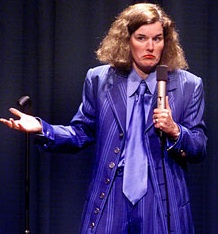
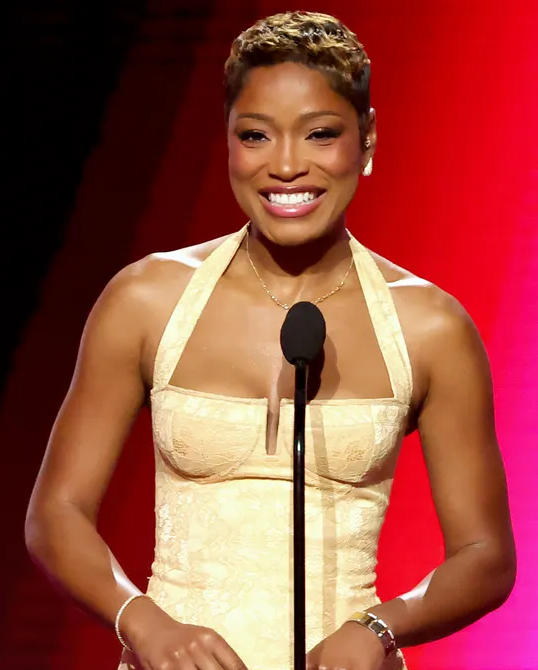

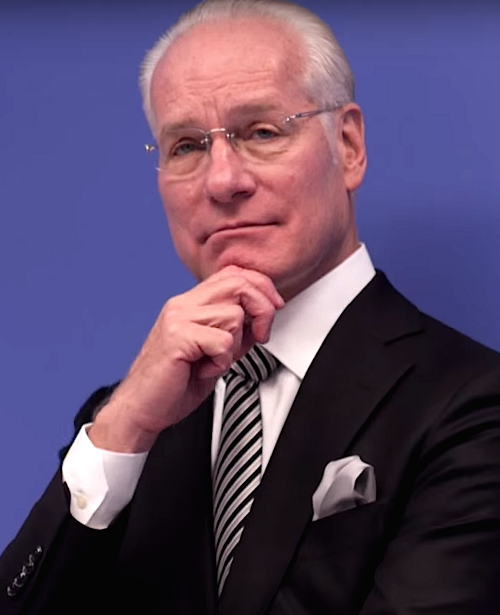
Cody Daigle-Orians - Educator
Ralph
Nader - Activist
Isaac
Newton - Physicist
JM Barrie
- Author (Peter Pan)
Florence
Nightingale - Founder of Modern Nursing
Nikola
Tesla - Scientist
George
Bernard Shaw - Author
Hansol -
K-Pop Musician
Emily
Bronte - Author
Rowan
Ellis - YouTuber, Educator
TE
Lawrence - Author
John
Frusciante - Musician (Red Hot Chili Peppers)
Keke Palmer is Almost 100% Sure She’s Asexual
What is Asexuality?
Asexual Quiz
Asexual and Aromantic Celebrities Paving the Way for
Better Representation in Media
Ace and Aro Icons Who Revolutionized How We See
Asexuality
How Coming Out as Asexual Made Me a More Joyful,
Autonomous Person
Discussion Group: Struggles of Asexuality
Is Asexuality a Disorder?
Things You Should Never Say to an Asexual Person
Trevor Project:
Understanding Asexuality
Info: Platonic Relationships
Asexual Relationships and Romance
Things I Learned From Dating an Asexual Guy
The Relationship Epiphany I Had When I
Discovered I Was Asexual


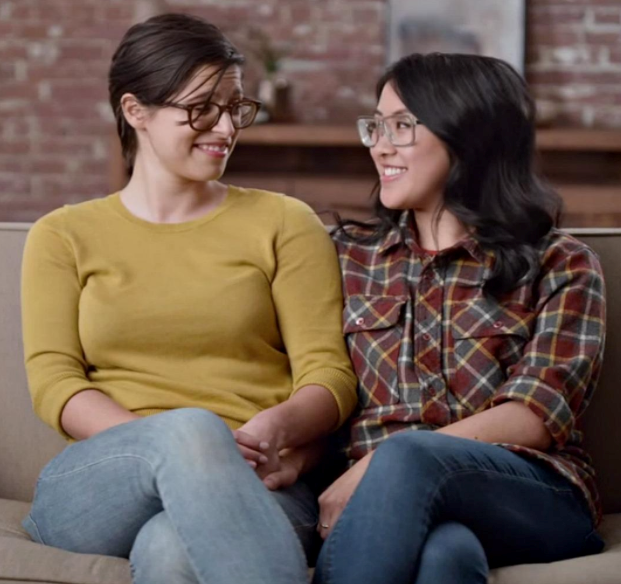
Asexuality
Defined
Sexually Disinterested
What is an asexual person? What does it mean to be
asexual? Simply put, an asexual person is one who has no
sexual feelings or desires to have physical intercourse
with another person.
It’s estimated that 1% of the world population is
asexual. That may not sound like a lot, but that’s
roughly 77,000,000 people, just over the entire
population of Canada and Poland combined. So it’s
entirely likely that you’ve met asexual people and just
not realized it.
Despite their disinterest in sex, asexual people can
feel romantically, intellectually or emotionally
attracted to people of one or more genders. And some
asexual people don’t feel any such attractions at all.
Such a person is called an aromantic asexual. While some
asexuals are aromantic asexual, asexual dating still
exists. Even an aromantic asexual and other asexuals can
get into relationships or experience pleasure or arousal
from physical contact
Contrary to popular misconception, asexual people feel
different degrees of sexual and romantic attraction
ranging from completely asexual and aromantic
(“nonexistent”) to “existent” under certain
circumstances. Also, how asexual people feel (their
attraction) may sometimes be different from what they do
(their actions).

Asexuality: Sex Education Clip
Asexual Visibility
and Education Network
Comprehensive Asexual Info and Quiz
This is What Sex Feels Like for an Asexual Person
The Relationship Epiphany I Had When I
Discovered I Was Asexual
Let's Talk: The Ace Community
Psychology Today: Brief Primer on Asexuality
Video: Asexuals Share Their Insights
All Your Questions
Answered: What It's Like to be Asexual
PBS Interview: Asexuality
Trevor Project:
Understanding Asexuality
The 150 different types of asexuality on the asexual
spectrum provide ways for people to specifically explain
how attracted (or not) they are to sex and romance and
why. Having these words can help people better
understand their own experiences, help them understand
that they’re not “weird” or “broken” and help them find
a community so they feel less alone.
Regarding sexual orientations, some asexuals do not
experience sexual attraction (asexual) and some do
(sexual). Others may experience occasional sexual
attraction (gray asexual or gray-sexual) or sexual
attraction only after they’ve developed a strong
emotional bond with someone (demisexual).
Are you asexual? Asking yourself a few questions can
help you explore your feelings around sex and
relationships.
--Do you now feel or have you ever felt sexually or
physically aroused by people’s physical appearance or
the idea of sexual touch?
--Have you ever felt like you don’t “get” sex? Have you
ever felt pressured to express sexual desire towards
others just to fit in?
--Does pursuing or having sex feel intrinsically
rewarding to you or does sex seem uninteresting,
unimportant, inconvenient or generally undesirable?
--Would abstinence or celibacy be difficult for you?
Have you ever gone without sex for months or years? Is
sex largely “take it or leave it” to you?
--Do you sometimes develop sexual feelings towards
someone after you’ve developed other emotional and
intellectual bonds with them?
Video: Different Types of Asexuality
Keke Palmer is Almost 100% Sure She’s Asexual
Things You Should Never Say to an Asexual Person
I
Am a Myth: An Asexuality Poem
Fifth Harmony’s Lauren Jauregui Says She Might Be
Demisexual
Asexuality: The Invisible
Orientation
TED Talk: The Amazing Aces
Debunking Asexual and
Aromantic Myths
What Do Asexuals Fantasize About?
Info: Romantic Orientation
Are Asexuals Part of the LGBTQ Community?
It's Okay to be Asexual
Video: Ace and Aro People in Relationships
Ace and Aro Icons Who Revolutionized How We See
Asexuality
Info: Sexual Identity
What is
Neutrois?




Asexuality Notes
Asexuality is not...
Abstinence
because of a bad relationship
Abstinence
because of religious reasons
Celibacy
or intentional virginity
Sexual
repression, aversion, or dysfunction
Loss of
libido due to age or circumstance
Fear of
intimacy
Inability
to find a partner
Asexual
people might...
Want
friendship, understanding, and empathy
Fall in
love
Experience
arousal and orgasm
Choose to
masturbate
Choose to
engage in sexual activity
Choose not
to engage in sexual activity
Be of any
gender, age, or background
Have a
spouse and/or children

What it's Like to Date When You're Asexual
Realizing I'm an Aromantic
Asexual
Ace and Aro Icons Who Revolutionized How We See
Asexuality
People Who Don't Want to Fall in Love
Asexual and Aromantic Celebrities Paving the Way for
Better Representation in Media
What Do Asexuals Want You
to Know?
Famous People Who Are Asexual
Things I Learned From Dating an Asexual Guy
Comprehensive Asexual Info and Quiz
Video: Asexuals Share Their Insights
Things You Should Never Say to an Asexual Person
Asexuality Myths
Myth:
Asexuality can't really exist.
Fact:
Asexuality is a sexual orientation just like hetero,
gay, lesbian, bi, and pan.
Myth: You
will eventually start having sex when the time is right
for you.
Fact: You
might never have sex. Love doesn't equal sex.
Myth: You
really need to see a doctor about your condition.
Fact:
There are many happy, healthy, relationships that don't
involve sex.
Myth: This
is just a phase. This will pass. Everyone wants sex
sometimes.
Fact:
Sexuality is fluid and exists on a spectrum. There are
many different types of sexuality.
Myth: Sex
is always a natural part of any adult relationship.
Fact: Sex
and sexuality are complicated. Give yourself time and
space to explore your feelings.

Asexual/Aromantic
Books
--ACE:
What Asexuality Reveals About Desire, Society, and the
Meaning of Sex by Angela Chen
--Gender
Queer by Maia Kobabe
--Radio Silence by Alice Oseman
--The Invisible Orientation: An Introduction to
Asexuality by Julie Sondra Decker
--How to Be Ace: A Memoir of Growing Up Asexual by
Rebecca Burgess
--The Cybernetic Tea Shop by Meredith Katz
--Loveless by Alice Oseman
--All the Wrong Places by Ann Gallagher
--Every Heart a Doorway by Seanan McGuire
--Hazel's Theory of Evolution by Lisa Jenn Bigelow
--Let's Talk About Love by Claire Kann
--Being Ace: Anthology of Stories of Asexual Love and
Connection, Edited by Cody Daigle-Orians
Queer 101: Ask an Asexual
Realizing I'm an Aromantic
Asexual
Keke Palmer is Almost 100% Sure She’s Asexual
How Coming Out as Asexual Made Me a More Joyful,
Autonomous Person
Romance Tips From the Most Famous Ace
Info: Platonic Relationships
Isaac's Asexuality Will Be Major
Storyline On Heartstopper Season 2
Asexuality: The Invisible
Orientation
Video: Different Types of Asexuality
What is Demisexuality Really?
Video Talk: Things Asexual People Want You to Know
Asexual People Explain What Asexuality Means to Them
Video: Signs You Might Be Asexual
Debunking Asexual and
Aromantic Myths
Asexual Quiz
Video Talk: I am a Demisexual

Understanding
Asexuality
Relationships
Asexual
people have the same emotional needs as anyone else, and
like in the sexual community we vary widely in how we
fulfill those needs. Some asexual people are happier on
their own, others are happiest with a group of close
friends. Other asexual people have a desire to form more
intimate romantic relationships, and will date and seek
long-term partnerships. Asexual people are just as
likely to date sexual people as we are to date each
other.
Sexual or nonsexual, all relationships are made up of
the same basic stuff. Communication, closeness, fun,
humor, excitement and trust all happen just as much in
sexual relationships as in nonsexual ones. Unlike sexual
people, asexual people are given few expectations about
the way that our intimate relationships will work.
Figuring out how to flirt, to be intimate, or to be
monogamous in nonsexual relationships can be
challenging, but free of sexual expectations we can form
relationships in ways that are grounded in our
individual needs and desires.



Embrace: Asexuality-Focused Animated
Short Film
Debunking Asexual and
Aromantic Myths
TED Talk: The Amazing Aces
Info: Romantic Orientation
Video: Ace and Aro People in Relationships
Asexual People Explain What Asexuality Means to Them
Video: ABCs of Asexuality
Asexual and Aromantic Celebrities Paving the Way for
Better Representation in Media
Asexual Dating Challenges
Video Talk: Being Asexual and Biromantic
Queer 101: Ask an Asexual
Attraction
Many
asexual people experience attraction, but we feel no
need to act out that attraction sexually. Instead we
feel a desire to get to know someone, to get close to
them in whatever way works best for us. Asexual people
who experience attraction will often be attracted to a
particular gender, and will identify as lesbian, gay,
bi, or straight.
Arousal
For some
sexual arousal is a fairly regular occurrence, though it
is not associated with a desire to find a sexual partner
or partners. Some will occasionally masturbate, but feel
no desire for partnered sexuality. Other asexual people
experience little or no arousal. Because we don’t care
about sex, asexual people generally do not see a lack of
sexual arousal as a problem to be corrected, and focus
their energy on enjoying other types of arousal and
pleasure.
[Source: Asexual Visibility & Education Network]

Info: Romantic Orientation
Asexuality: The Invisible
Orientation
How Coming Out as Asexual Made Me a More Joyful,
Autonomous Person
Video: Ace and Aro People in Relationships
TED Talk: The Amazing Aces
Fifth Harmony’s Lauren Jauregui Says She Might Be
Demisexual
Asexual Relationships & the Ace Community
Info: Sexual Identity
Ace and Aro Icons Who Revolutionized How We See
Asexuality
The Relationship Epiphany
I Had When I Discovered I Was Asexual
Trevor Project:
Understanding Asexuality
Chart: The Asexual Spectrum
Video Talk: I am a Demisexual
Psychology Today: Brief Primer on Asexuality
Info: Platonic Relationships
What is
Neutrois?
Video Talk: Things Asexual People Want You to Know

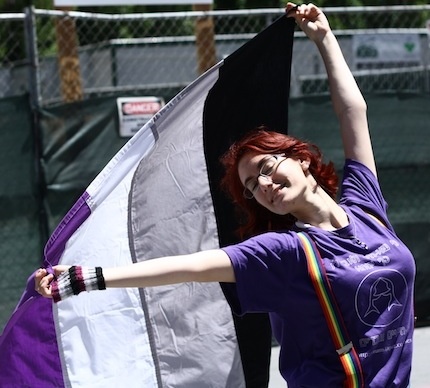

Asexuality
Explained
How about
we just cuddle?
People who
identify as asexual don’t really feel sexual attraction
towards anyone. They may think other people are
physically attractive, or they may want to be in
romantic relationships with people. But they’re not
interested in having sex or doing sexual things with
other people.
Asexuality has nothing to do with romantic attraction.
Many asexual people feel romantically attracted to
people, so they may identify as asexual, and also as
gay, lesbian, bisexual, or straight. They just don’t
feel any desire to act on these feelings in a sexual
way.
Asexual people have emotional needs just like everyone
else. Some asexual people have romantic relationships,
and others aren’t interested in that. They get close to
people or experience intimacy through ways other than
sex.
There are
varying degrees of asexuality based on the level and
type of sexual activity an asexual engages in.
Asexuals that are "Sex Repulsed" have no interest in sex
whatsoever and never engage in sex. Asexuals that
are "Sex Neutral" have a very casual or low interest in
sex and may only engage in it to please their partner.
Asexuals that are "Sex Positive" might actually engage
in sex as a utilitarian act totally separate from sex
within a purely romantic relationship.
Asexual Research
Video: Asexuals Share Their Insights
I'm Demisexual: Here's What I Want You To Know
Asexuality: Sex Education Clip
Things I Learned From Dating an Asexual Guy
What is Demisexuality Really?
I
Am a Myth: An Asexuality Poem
Asexual and Aromantic Celebrities Paving the Way for
Better Representation in Media
Things You Should Never Say to an Asexual Person
Video Talk: Being Asexual and Biromantic
Asexuality: What You
Should Know
Demisexual People Explain What Demisexuality Means to
Them

Not
romantic, perhaps?
There are also people who don’t feel romantic attraction
or want to be in romantic relationships. They may
identify as aromantic. Being aromantic and being asexual
are two separate things.
Some asexual people do get aroused (turned on), but they
don’t feel the desire to be sexual with other people.
And some asexual people masturbate. But others may not
feel arousal at all.
It’s totally normal to go through times when you don’t
want to have sex, but that doesn’t necessarily mean
you’re asexual. And asexuality is not the same thing as
being celibate. Celibacy is a choice you make, and
asexuality is a sexual identity (who you naturally are).
Like other sexual orientations, asexuality isn’t always
black and white. There’s a spectrum between being sexual
(having sexual attraction) and being asexual. Different
people fall into different places on that spectrum. Some
people who have very little sexual attraction to other
people identify as gray-a. Some people who are only
sexually attracted to people they’re in relationships
with identify as demisexual.
There is nothing “wrong” with people who are asexual,
and there’s no evidence to support that people are
asexual because of any kind of mental health issue or
psychological trauma.
It’s actually kind of common. Some research says that 1
out of 100 adults is asexual.
[Source: Planned Parenthood]
Realizing I'm an Aromantic
Asexual
What is
Neutrois?
Info: Platonic Relationships
Psychology Today: Brief Primer on Asexuality
Fifth Harmony’s Lauren Jauregui Says She Might Be
Demisexual
Asexual People Explain What Asexuality Means to Them
I'm Demisexual: Here's What I Want You To Know
What is Demisexuality Really?
Video Talk: Coming Out as Ace
All Your Questions
Answered: What It's Like to be Asexual
Video Talk: I am a Demisexual
Asexuality: The Invisible
Orientation
Isaac's Asexuality Will Be Major
Storyline On Heartstopper Season 2
PBS Interview: Asexuality
Info: Romantic Orientation
Trevor Project:
Understanding Asexuality
What it's Like to Date When You're Asexual
Demisexual People Explain What Demisexuality Means to
Them


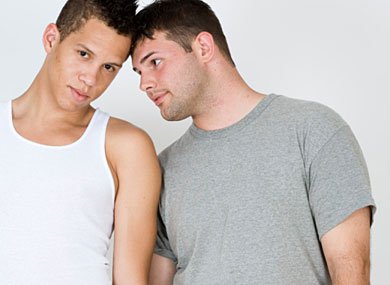
The Ace Spectrum
Demi... Semi... Hypo... Gray...
The Asexual Visibility & Education Network (AVEN) has
devised a useful model which can be helpful in
understanding asexuality. This research-based model is
called the Asexuality Spectrum. Asexuality can be
understood in terms of Romantic Orientation and Sexual
Orientation and the interplay between the two. It
addresses the causes and effects of primary and
secondary forms of sexual attraction and sexual desire.
An asexual person's romantic orientation may be
described along a continuum as: heteroromantic,
homoromantic, biromantic, panromantic, or aromantic. (An
aromantic person experiences little or no romantic
attraction to others and/or a lack of interest in
forming romantic relationships.)
An asexual person's sexual orientation may be described
along a continuum as: asexual, gray area, demisexual, or
sexual.
In between sexuality (persons who experience sexual
attraction) and asexuality (persons who do not
experience sexual attraction), there is a fluid or gray
area that is described by this model.
"Gray Area" or "Gray-A" is a term used to describe a
person who is both sexual and asexual. Other terms used
are "graysexual" or "hyposexual" or "semisexual" or "asexualish" or "sexualish."
"Demisexual" is a term used to describe a person who
does not experience sexual attraction unless they form a
strong emotional connection with somebody. It is
commonly seen in, but not confined to, romantic
relationships. Demisexuality refers to an orientation
between sexual and asexual.

Asexual Relationships & Romance
Queer 101: Ask an Asexual
How Coming Out as Asexual Made Me a More Joyful,
Autonomous Person
Video Talk: Being Asexual and Biromantic
Shades of Grayro: Romantic Orientations
Fifth Harmony’s Lauren Jauregui Says She Might Be
Demisexual
I'm Demisexual: Here's What I Want You To Know
Zucchini: Short Film
Video: Ace and Aro People in Relationships
Asexual Dating Challenges
Love Panky: Different Kinds of Romantic Orientations
Reciprosexuality and Reciprioromanticism
Discussion Group: Struggles of Asexuality
TED Talk: The Amazing Aces
Ace and Aro Icons Who Revolutionized How We See
Asexuality
The Relationship Epiphany I Had When I
Discovered I Was Asexual
Asexuality: The Invisible
Orientation
Is Asexuality a Disorder?
What is
Neutrois?
Asexual and
Aromantic Slang
Ace -
Someone who identifies on the asexual spectrum
Aro - Someone who identifies on the aromantic spectrum
Aro|Ace - Someone who identifies as both aromantic and
asexual
Ace of Spades - Someone who identifies as an aromantic
asexual
Ace of Hearts - Someone who identifies as a romantic
asexual
Asexual
Varieties
Among the
many varieties of asexual orientation are the following
labels: Demisexual, Aegosexual, Aetusexual,
Requissexual, Wolandsexual, Parasexual, Cuddliosexual,
Graysexual, Placiosexual, Aceflux, Acespike, Acevague,
Agensexual, Caedsexual, Fictosexual, Proculaesexual,
Sapiosexual, Quoisexual, Iculasexual, Fraysexual, Reciprosexual,
Apothisexual, Cupiosexual, Lithrosexual, Akiosexual,
Autosexual.
|

|
--Demisexual
- Term for someone who
does not experience sexual attraction unless they form a
strong emotional connection with somebody.
|
|

|
--Lithrosexual/Akiosexual - Term for someone who does feel
sexual attraction but does not actually want or need it to
be reciprocated.
|
|

|
--Reciprosexual - Someone who does not experience
sexual attraction unless they know that the other person
is sexually attracted to them first.
|
|

|
--Placiosexual - Someone who feels little to no desire
to receive sexual acts but expresses desire to perform
them on someone else. |
|

|
--Fraysexual
- Someone who feels sexual attraction to someone after
meeting, although the attraction fades as the emotional
bond strengthens. |
|

|
--Cuddliosexual
- Someone who only feels sexually attraction to people
when cuddling. |
|

|
--Autosexual - Someone who prefers self-gratification
(masturbation) to having sex with another person.
Someone who prefers having sex with him/herself. |
|

|
--Graysexual - Someone who can be defined in fluid area
between people who are sexual and people who are not
sexual. They might be described as someone who is both
sexual and asexusal.
|
|

|
--Cupiosexual - Someone who never experiences sexual
attraction, but still desires a sexual relationship.
They experience no sexual desire, yet desire a sexual
relationship. |
|

|
--Quoisexual - Someone who doesn't relate to or
understand experiences or concepts of sexual attraction
and orientation. It can also refer to someone who feels
confusion about their own feelings of sexual attraction
and orientation. |
Asexual Visibility
and Education Network
Let's Talk: The Ace Community
Fifth Harmony’s Lauren Jauregui Says She Might Be
Demisexual
I'm Demisexual: Here's What I Want You To Know
What is Demisexuality Really?
Debunking Asexual and
Aromantic Myths
Video: ABCs of Asexuality
This is What Sex Feels Like for an Asexual Person
Info: Sexual Identity
Asexual and Aromantic Celebrities Paving the Way for
Better Representation in Media
Comprehensive Asexual Info and Quiz
Demisexual People Explain What Demisexuality Means to
Them
Things I Learned From Dating an Asexual Guy
Here are
some additional examples of asexual orientations. Some
asexual varieties are more rare or obscure, including
some of these labels:
--Inculasexual - Someone who is asexual but is generally
or occasionally open to the idea of having sex.
--Aegosexual
- Disconnection between oneself and a sexual
target/object of arousal. It may involve sexual
fantasies, or arousal in response to erotica or
pornography, but lacking any desire to be a participant
in the sexual activities therein.
--Fictosexual
- Someone whose sexuality is influenced by fictional
characters or anyone who is exclusively drawn to
fictional characters or a general type of fictional
character.
--Sapiosexual - Someone who is sexually
attracted to intelligence in other people.
--Apothisexual - Someone who is a sex-repulsed asexual.
--Agensexual - Someone who is a genitalia-repulsed
asexual.
Realizing I'm an Aromantic
Asexual
Video Talk: Coming Out as Ace
AVEN: Romantic Orientation
Info: Romantic Orientation
Video: Different Types of Asexuality
What is Asexuality?
Asexuality, Attraction, and Romantic Orientation
PBS Video: Asexuality
Info: Platonic Relationships
Debunking Asexual and
Aromantic Myths
TED Talk: The Amazing Aces
Asexuality: The Invisible
Orientation
Ace and Aro Icons Who Revolutionized How We See
Asexuality
Trevor Project:
Understanding Asexuality
What is
Neutrois?

Sapiosexual
I am in
love with your brain...
A
sapiosexual person is someone who finds intelligence and
the human mind to be the most sexually attractive
feature for a potential sexual relationship, often
regardless of gender or conventional attractiveness. A sapiosexual is someone that is sexually, physically, and
mentally turned on by smart people. Sapiosexuals are
aroused by intelligence and aesthetic talents. The origin of the word comes
from the term "sapiens," which means wise or judicious.
If you are
a sapiposexual person, intelligence, and deep
conversation, inspires you and turns you on. When
looking for potential partners, intelligence is always
at the top of your list. You love debating. Physical
attraction is great, but conversation is better. The
more you get to know someone, the more attracted to them
you are. You hate small talk. You are extremely turned
off by foolishness or brutism. You would much rather
meet someone in a bookstore than a bar. You are an
incredible listener. Bad grammar is one of your biggest
turn offs.

Smart is
sexy...
And it’s not just about book smarts for you. While most
would think that being attracted to intelligence in
others refers to their knowledge of topics that are
tangible, that’s not the only kind of intelligence that
draws you to someone. Instead, you also find emotional
intelligence, and self-awareness incredibly sexy. You
love when someone is in tune with their feelings, and
you admire those who can rationalize and work through
situations using their mind. You find that kind of
maturity enticing.
Noetisexual, a label used purely for specificity of
one's attraction, means that a person is attracted to
the way others' minds work rather than simply one
ill-defined facet of it (intellect). This label is
considered an alternative to the term sapiosexual.
Noetisexuals are exclusively sexually (and or
romantically) attracted to the shape of another person's
mental landscape and want to explore it. It’s about
falling in love with the way they think and their unique
mental make up.
Noetisexuals are unable to bring themselves to feel
sexually/romantically attracted to those that do not
have a mentality that is up to their standards even if
they are physically attractive or if there is an
existing emotional bond.
Are You a Sapiosexual?
Psychology Today: Sapiosexuality
Cosmopolitan: What it's Like to be Sapiosexual
Sapiosexual vs Noetisexual
Dating Sapiosexuals
Asexuality,
Celibacy, Abstinence, Virginity
Orientation vs Behavior
Celibacy is the state of voluntarily being unmarried,
sexually abstinent, or both, usually for religious
reasons. It is often in association with the role of a
religious official or devotee. In its narrow sense, the
term celibacy is applied only to those for whom the
unmarried state is the result of a sacred vow, act of
renunciation, or religious conviction. In a wider sense,
it is commonly understood to only mean abstinence from
sexual activity.
What's the difference between celibacy and abstinent?
While they are often used interchangeably, celibacy,
abstinence, and chastity are not exactly the same.
Celibacy is generally recognized as a voluntary choice
to remain unmarried or engage in any form of sexual
activity, usually in order to fulfill a religious vow.



Activity vs Attraction
Often confused with chastity, celibacy is an abstinence
from sex that is correctly performed on a permanent
basis. The Catholic Church defines the only foolproof
method of birth control as being "chastity outside of
marriage and celibacy within marriage."
What's the difference between celibacy and chastity?
Chastity means no sex while you are single. Celibacy
means no sex while you are breathing.
Celibacy and asexuality are two different concepts.
Celibacy means someone doesn’t have sex. Asexuality
means someone doesn’t have sexual attraction.
Asexuality describes an orientation, not behavior.
Heterosexuals are attracted to the opposite sex,
homosexuals are attracted to the same sex, and asexuals
aren’t attracted to any sex. However, it’s possible for
someone to have sex with someone they’re not sexually
attracted to. Someone can be asexual and still have sex.
Celibacy is about behavior. Someone who is celibate is
not having sex by definition, while someone who is
asexual doesn't experience sexual attraction, but they
may or may not be having sex.
Sexual
abstinence or sexual restraint is the practice of
refraining from some or all aspects of sexual activity
for medical, psychological, legal, social, financial,
philosophical, moral, or religious reasons. Asexuality
is distinct from sexual abstinence. And celibacy
is sexual abstinence generally motivated by factors such
as an individual's personal or religious beliefs. Sexual
abstinence before marriage is required in some societies
by social norms, or, in some countries, even by laws,
and is considered part of chastity.
Abstinence may be voluntary (when an individual chooses
not to engage in sexual activity due to moral,
religious, philosophical reasons), an involuntary result
of social circumstances (when one cannot find any
willing sexual partners), or legally mandated (in
countries where sexual activity outside marriage is
illegal or while in prison).



Chastity
and Restraint
Abstinence
is a self-enforced limit in engaging in any bodily
activities that are typically related to desire. Most
commonly, the term being abstinent refers to sexual
abstinence, which means not having any type of sexual
intercourse or sex play with a partner.
Virginity
is the state of a person who has never engaged in sexual
intercourse. There are cultural and religious traditions
that place special value and significance on this state,
predominantly towards unmarried females, associated with
notions of personal purity, honor and worth.
Like chastity, the concept of virginity has
traditionally involved sexual abstinence. The concept of
virginity usually involves moral or religious issues and
can have consequences in terms of social status and in
interpersonal relationships.
The term virgin originally only referred to sexually
inexperienced women, but has evolved to encompass a
range of definitions, as found in traditional, modern
and ethical concepts. Heterosexual individuals may or
may not consider loss of virginity to occur only through
penile-vaginal penetration, while people of other sexual
orientations often include oral sex, anal sex or mutual
masturbation in their definitions of losing one's
virginity.
Asexuality and Celibacy
Defining Celibacy
Abstinence and Contraception
Video Explanation: Virginity
Defining Sexual Abstinence
Defining Virginity



Virginity
“Virginity, virginity! Where will you go when you’ve
left me?”
-Sappho
What is virginity? Virginity is the state of never
having had sex. But people define “sex” and “losing
virginity” in many different ways.
What does it mean to be a virgin? A virgin is someone
who has never had sex. But it’s not quite as simple as
it seems. That’s because sex means different things to
different people, so virginity can mean different
things, too.
A lot of people think that having penis-in-vagina sex
for the first time is how you lose your virginity. But
this leaves lots of people and other types of sex out of
the picture.
Some people haven’t had penis-in-vagina sex, but they’ve
had other kinds of sex (oral sex or anal sex) and
they may or may not see themselves as virgins. And there
are lesbian, gay, bisexual or pansexual people who may
never have penis-in-vagina sex at all. But they probably
don't see themselves as lifelong virgins just because
they haven’t had penis-in-vagina sex.
Many people believe rape and sexual assault aren’t sex.
It’s only sex if both partners have consent. So if
someone was forced or pressured the first time they had
vaginal sex, oral sex, or anal sex, they may not see
that as “losing their virginity.”
Bottom line: the definition of virginity is complicated,
and it’s really up to you to decide what you believe.
Some people don't even care what “virginity” means or
think it matters. Stressing about whether you’re a
virgin is way less important than how you feel about
your sexual experiences. Ask yourself: are you happy
with the sexual experiences you've had or decided not to
have?
What is Virginity?
Video: Actual Definition of Virgin
Sexplanations: Virginity 101
Healthline: Losing Your Virginity
First Time Sex
Virginity Doesn't Exist
Every time should be special... Not just the first time
Cayce LaCorte, a mother raising five daughters, has a
unique parenting tip that some have found to be a
healthy approach to teaching children about sex.
She says that virginity is a social construct that comes
with a lot of weight. Some people view being a virgin as
a good thing, something to be praised or coveted. Others
view it as a bad thing, indicating inexperience and not
being cool.
“It is a patriarchal concept used to control women and
serves no purpose — other than making women feel bad
about ourselves,” she explains. “Sex is important. It’s
a big deal. It should always be a big deal. It has
nothing to do with your first time. The whole concept of
the first time is ridiculous.”

"The purity culture is toxic at its core"
LaCorte says that having sex doesn’t change anything
about yourself other than the fact that you’ve
participated in an activity that you hadn’t before. It
does not change your worth or who you are.
She mentions that the concept of virginity is even more
damaging to victims of sexual assault. "We all have our
own stories about being pressured into doing something
we didn’t want to do. We can all empathize,” she says.
“For an entire society to tell you that your worth is
tied to your virginity or purity, then have someone take
that from you?! It’s heartbreaking and infuriating."
LaCorte says teaching girls that their first time should
be special takes away from the fact that every
time should be special.
"The purity culture is toxic at its core," she
points out. "Women are treated vastly different than men
because its roots are steeped in a history of women
being regarded as property. Can you imagine what the
world would look like if society put half as much effort
into making the world a safer place for women, instead
of worrying that she’s not a virgin for her husband?”
She says that there are far more important things in
life than whether or not you are a virgin. Let’s focus
on properly educating our children on sex, consent, and
self-worth instead of teaching them to judge themselves
based on something that isn’t even real. Virginity
doesn’t exist, but a healthy relationship with sex does.
[Cayce LaCorte, Mother to five daughters, Charleston,
South Carolina]
Asexuality and Celibacy
Defining Celibacy
Abstinence and Contraception
Video Explanation: Virginity
Defining Sexual Abstinence
Defining Virginity
Relationships,
Squishes, and Zucchini
Aromantic platonic relationships...
Being in a relationship does not necessarily imply that
there is romance. The asexual community (including
aromantics) separates sexual and romantic orientation.
There is such a thing as non-romantic loving
relationships. Most people would agree that family is
kind of non-romantic loving relationship, especially
from the mother to the children, but friendship and
companionship may be more important than romantic
partnership even for some romantic people.
Not only is love not exclusive of romance, but even
infatuation. For the latter, the asexual community
coined the term “squish” to refer to an asexual
aromantic crush. And they recently coined the term
“zucchini” to refer to an aromantic platonic
relationship.

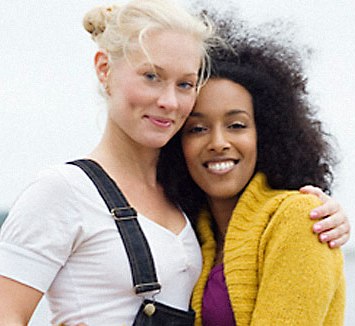
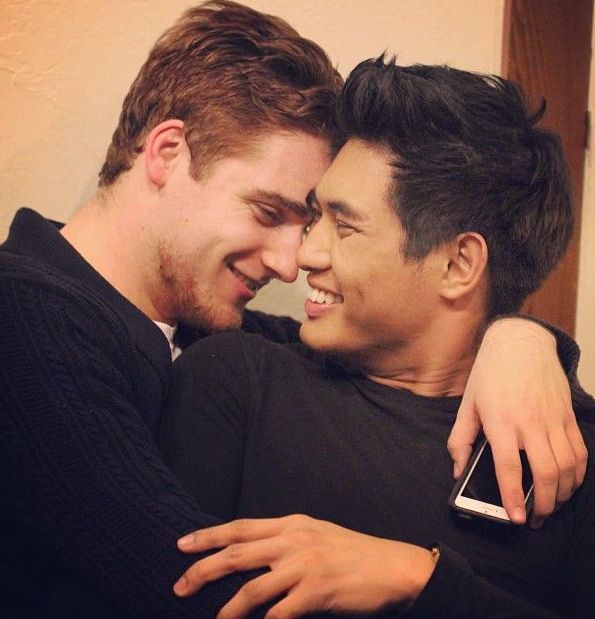
Zucchini: Short Film
Asexual People Explain What Asexuality Means to Them
Realizing I'm an Aromantic
Asexual
This is What Sex Feels Like for an Asexual Person
Video: Asexuals Share Their Insights
Video: Ace and Aro People in Relationships
PBS Interview: Asexuality
Info: Romantic Orientation
People Who Don't Want to Fall in Love
Psychology Today: Gay Men and Straight Men as Friends
Queer Friendships: Platonic and Romantic
We're Not Gay: We're Besties
What Is a Platonic Relationship
Asexuality, Attraction, and Romantic Orientation
Queerplatonic
Relationships
Intensity and significance of the emotional
connection...
A queerplatonic relationship (QPR) is one which is more
intense and intimate than what most people regard as a
friendship, not fitting the traditional romantic couple
model. It is characterized by a strong bond, love, and
emotional commitment, yet is not perceived by those
involved as romantic or more than a friendship. Being a
so-called platonic relationship, it does not comprehend
sexuality/eroticism or exclusivity nor it is this what
the relationship is organized around. It is defined by
the intensity and significance of the emotional
connection.
The people involved do not have to identify as queer. It
is a type of relationship experienced by and available
to anybody regardless of their sexual orientation,
romantic orientation, or monogamy. The people involved
in a queerplatonic relationship may consider themselves
partners, life-partners, a couple, a triad, or any other
term that implies the relationship is meaningful,
committed and intimate. Because queerplatonic
relationships are not based on exclusivity, a
participant of the relationship may have multiple QPPs
and exclusive relationships (romantic or sexual) with a
third party not involved in the QR.
Queerplatonic partners (QPs or QPPs) are sometimes
referred to as "zucchini.” This was originally a joke
within the aromantic asexual community, underscoring the
lack of words in mainstream relationship discourse to
signify meaningful relationships that do not follow the
standard and expected sexual/romantic norms, and
frustration with the erasure of other kinds of intimacy,
which were perceived as equally valuable to the
sexual/romantic model.
Due to the controversy surrounding the reclamation of
"queer", an alternative to queerplatonic is "quasiplatonic"
or "quirkyplatonic".
In some situations the people involved can show physical
affection such as cheek kisses, pecks on the lips,
holding hands, sitting on each other's lap, seeing each
other naked, cuddling and literally sleeping together.
To QPPs, these activities are not necessarily romantic
nor sexual/erotic.

Autosexual
Self Loving
The term "autosexual" is associated with the act of
masturbation or the person engaged in it. An autosexual
is a person who has sex with himself or herself.
An autosexual is one who is intimate with, aroused by,
or causes arousal to, his or her own body.
An autosexual is someone who has sexual attraction to
oneself, especially a preference for masturbation over
sexual intercourse. Experiencing romantic feelings
towards oneself is called "autoromantic." Masturbation
is an autosexual activity. The word autosexual (along
with a parallel term, "autoeroticism") is found by the
early 1900s as a term for sexual self-stimulation,
specifically masturbation. In 1869, Karl-Maria
Kertbeny referred to people who only masturbate and
don't engage in sexual contact with others as "monosexual."
Video Talk: Coming Out as Ace
Asexual Visibility
and Education Network
Let's Talk: The Ace Community
How Coming Out as Asexual Made Me a More Joyful,
Autonomous Person
What is Demisexuality Really?
Asexuality: Sex Education Clip
Discussion Group: Struggles of Asexuality
Info: Sexual Identity
Video Talk: Things Asexual People Want You to Know
Asexual People Explain What Asexuality Means to Them
This is What Sex Feels Like for an Asexual Person
What is
Neutrois?
Video: Asexuals Share Their Insights
Psychology Today: Brief Primer on Asexuality
All Your Questions
Answered: What It's Like to be Asexual
Video: ABCs of Asexuality
Info: Platonic Relationships
Asexual Dating Challenges
Video: Ace and Aro People in Relationships
PBS Interview: Asexuality
Debunking Asexual and
Aromantic Myths
Asexual Quiz
I Am a Myth: An Asexuality Poem
Reciprosexuality and Reciprioromanticism
Info: Romantic Orientation
Asexuality: The Invisible
Orientation
People Who Don't Want to Fall in Love
Video Talk: Being Asexual and Biromantic

HOME
QUEER CAFE
│ LGBTQ Information Network │ Established 2017 |